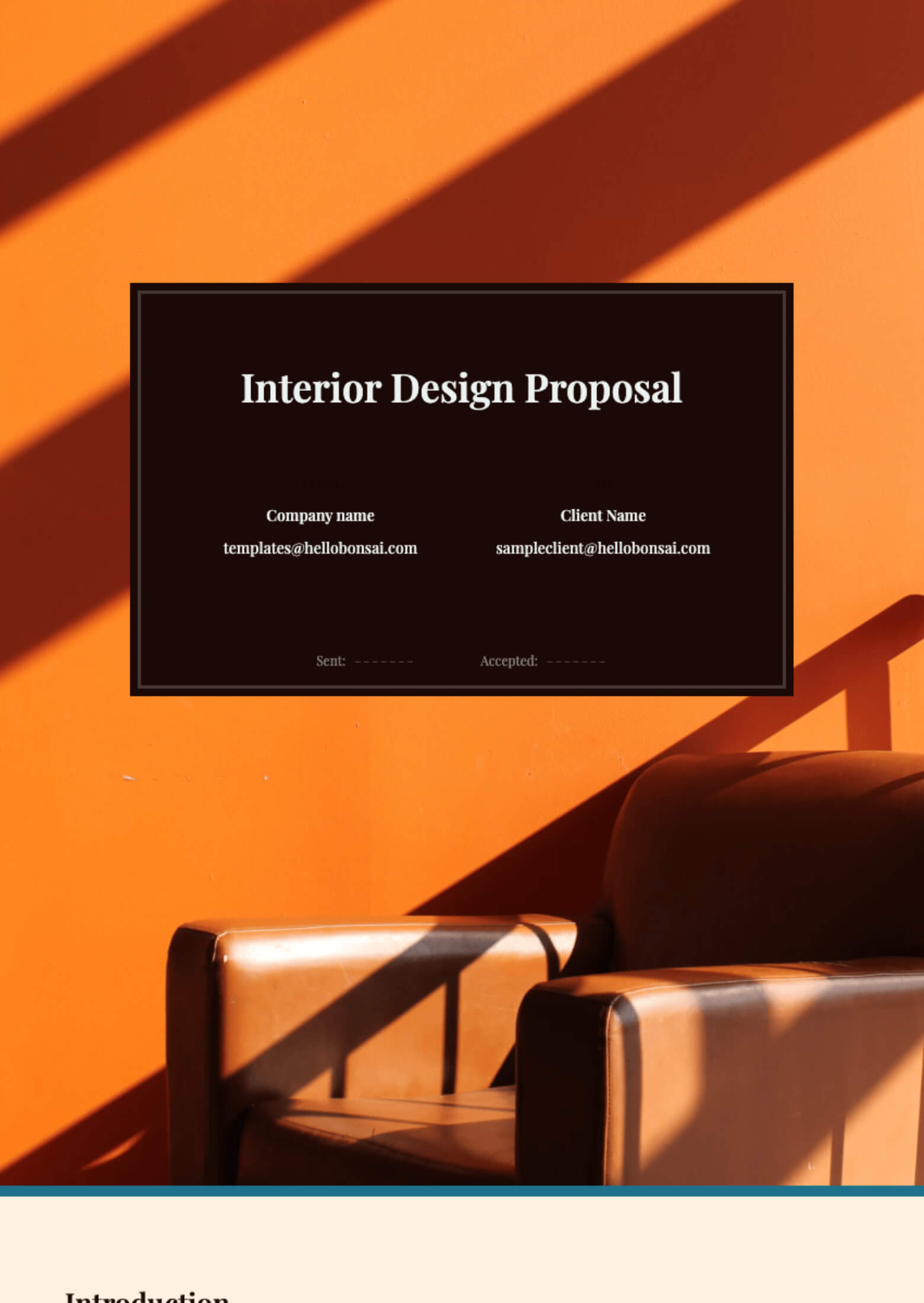As an independent roofing contractor, or you run a roofing company, you want to provide premium services that leave your customers happy and lead to more business. But first, you need to be able to convince your potential client that you're the best for the job, and this may not be as easy as it sounds. Commercial roofing is a much larger job compared to residential roofing services, and it requires significantly more planning, equipment, materials, manpower and expertise.
For this reason, you must be able to write strong proposals that show you have what it takes to do the job and meet your client's expectations. To make this process more efficient, you can create your own commercial roofing proposal template that outlines a clear structure so you never miss any important details, and you can quickly create perfect proposals every single time.
Let's go over the essential elements your proposal template must include.
Note: Need help to instantly create client-winning proposals? Use Bonsai's all-in-one freelancing hub that offers a wide array of free proposal templates and follow up tools to help you land the job!
Essential Elements of Commercial Roofing Proposals
When creating your commercial roofing proposal, remember this can be considered a legally-binding document, therefore any mistakes or omissions can easily lead to disputes or legal ramifications. You want to be straightforward but don't overlook the little details when it comes to warranties and materials. Here's what you must include.
Cover Page
No good roofing proposal is complete without a well-designed cover page. You must provide information about your past successful roofing projects, testimonials from previous clients, and give an insight of your company's experience. Mention any licenses and certifications you hold, how long you've been in business, and your contact information.
Here you can also include your company logo and other branding elements you find appropriate, and you can even include professional head shots of you and your key team members.
Project Information
The first section of your roofing proposal should include a brief explanation of the project, detailing your findings upon site inspection and your proposed solution. Include photos of the existing roof, diagrams, information about edge and gutter installation, as well as details on the safety measures you will follow during the job. This will really show the client you have properly assessed and planned the roofing project.
Job Description
Next, you must describe in detail the services you intend to provide. You want to paint a clear picture of what the project scope is. Explain the tasks you will complete such as replacement of shingles, ridge vents, flashing, underlayment, etc. Include a detailed list of the roofing materials that will be used for the project, outlining all relevant information, such as the material's grade, shingle style, thermal resistance, and maker.
Estimated Costs & Payment
This section of your roofing proposal template should detail the total costs of the roofing materials needed, as well as labor rates based on the amount of hours estimated to complete the job. You must provide a payment schedule to let your client know how and when you expect to get paid. This includes the percentage you will ask for as a down payment, and how many more payments will be due after that, whether you will require those payments on a certain date or upon completion.
Project Schedule
You'll need to lay out a project timeline specifying the start date and estimated completion date as well as any due date for milestones or project specifics. Usually, a roofing job doesn't take long, but this is a great addition, not only to help you track tasks and stay on schedule, but to allow your clients to make the needed preparations to ensure you can do the work without inconveniences.
Insurance & Guarantees
A great commercial roofing proposal should outline the potential liabilities as well as how the roofer's insurance will take care of them in the event of an accident. You must describe the type of insurance you have in place and how you will adhere to local compliance standards. You should also provide the terms of warranty on installation, and disclose the manufacturer warranty on the materials used. Make sure to include the duration of your warranty and exclusions (work done by a subcontractor, lack of maintenance or misuse).
Waste Removal
No matter what kind of work needs to be done, roofing is filthy. Shingles, nails, and other trash strewn all throughout the place. Because of this, it's important to describe your clean-up strategy in your roofing proposal. Whether you will bring a container to the job site, utilize a large, square magnet to collect the wayward nails, and any other way in which you will tidy up the mess after the work is finished.
Call to Action
Finally, you want to outline the next steps to follow in case your client accepts the proposal. Write a compelling call to action that leaves your clients with a favorable impression of your organization, and be sure to project the image of someone who is both professional and enjoyable to work with. Invite your client to accept your proposal online via email (digital signatures) and let them know how to contact you in case of any clarifications needed.
Use Our Free Roofing Proposal Template
If you don't have time to create your own proposal template, skip the headache and download Bonsai's free proposal templates especially designed for roofing contractors. You can fully customize every aspect of your free template to fit your business' needs, and make it your own, ensuring consistency and professionalism in your proposal workflow. Once you send out your proposal, we help you keep track of it with notifications when your client receives and accepts it.
Bonsai also offers a wide range of administrative tools to help you take your roofing business even further. Use our tax, accounting and invoicing software to streamline your paperwork and keep your business finances under control. Start your 14-day free trial today and see why Bonsai is the go-to option for freelancers and small business owners in all industries.










































































































%20(1).svg)